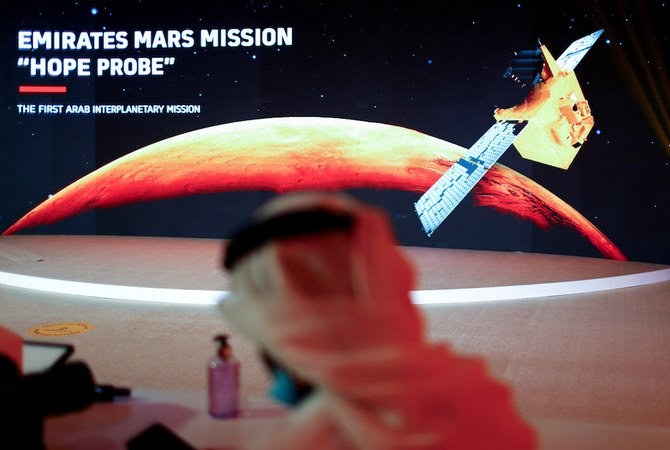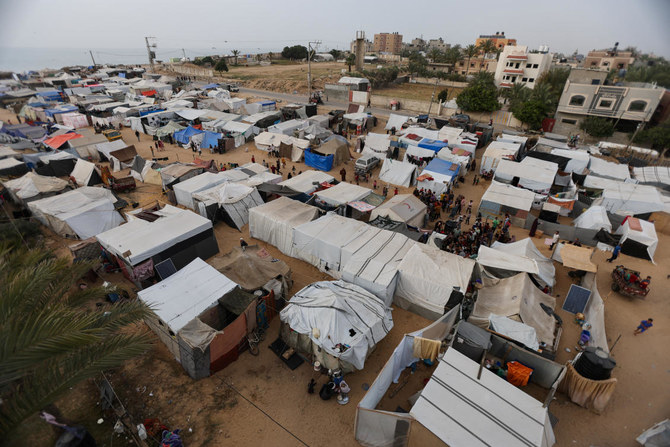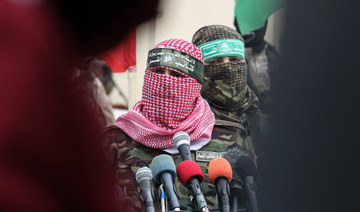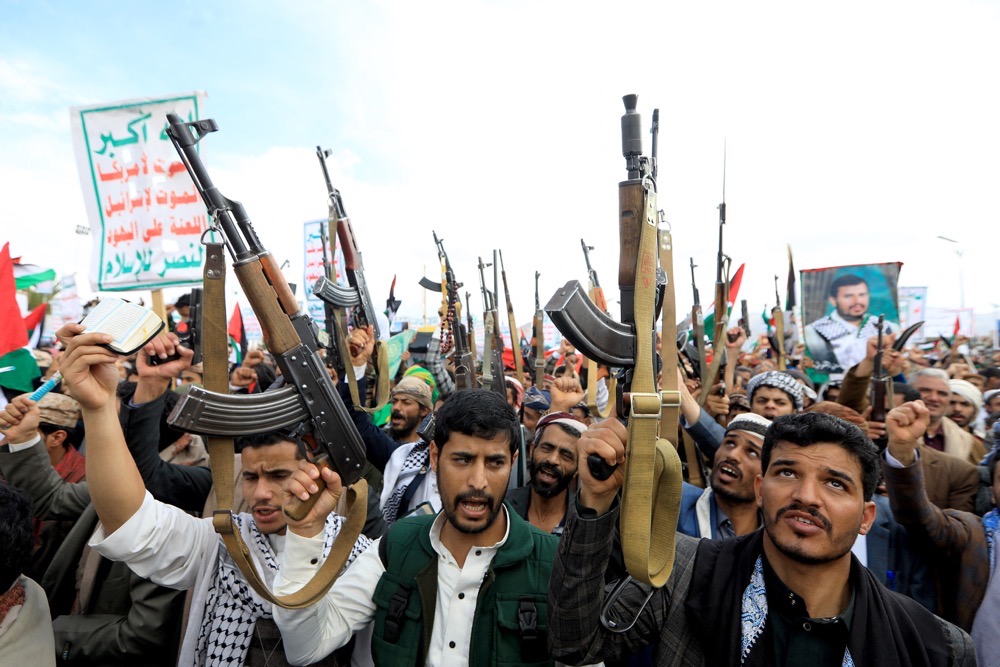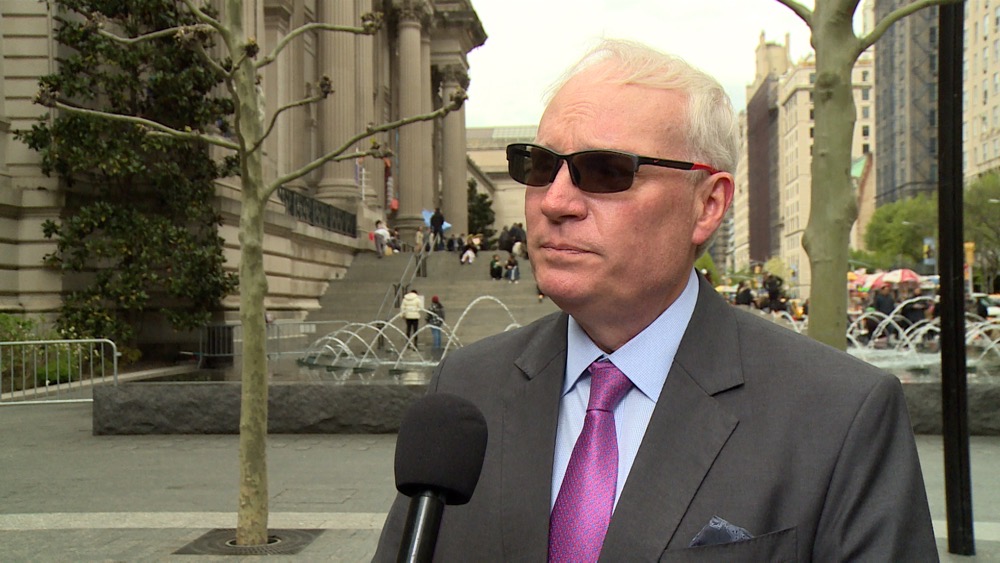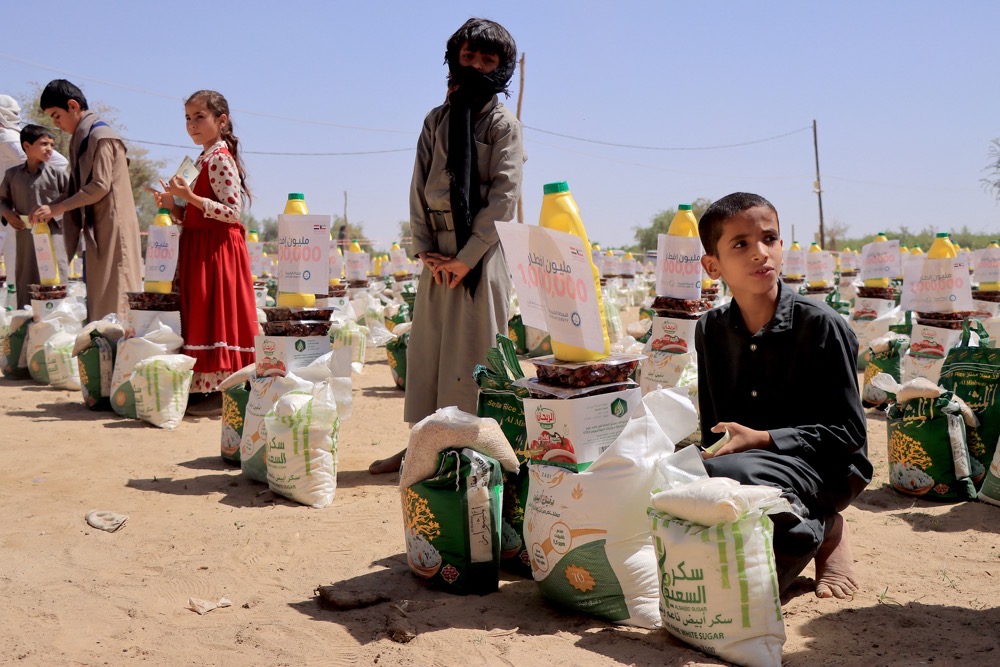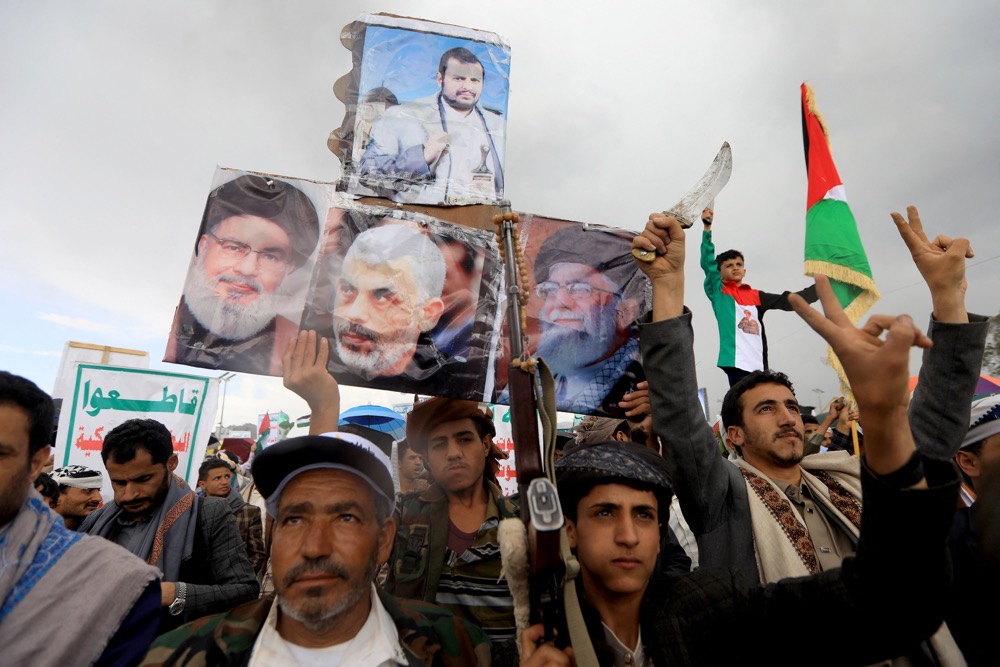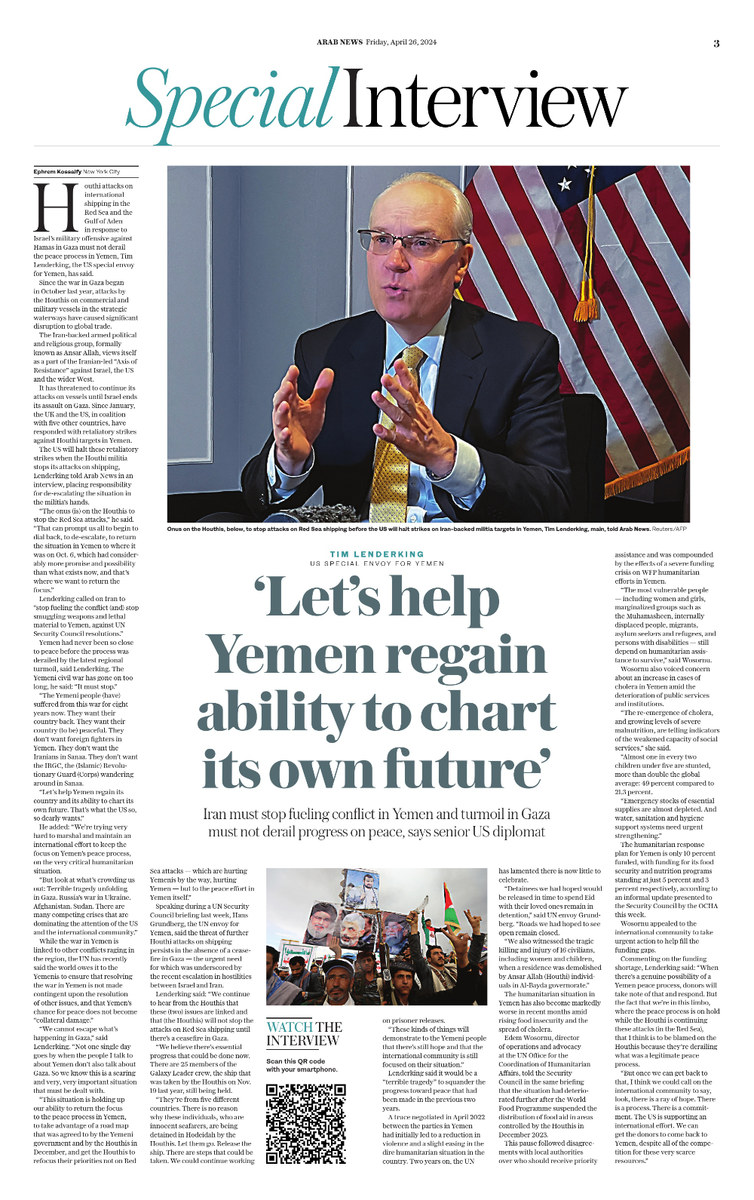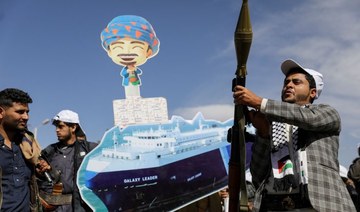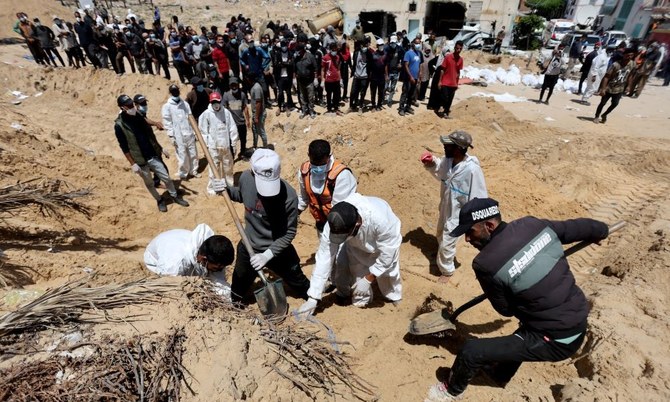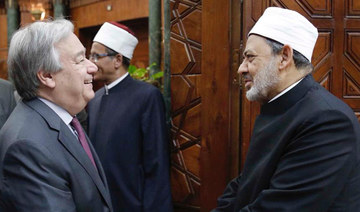TOKYO: A United Arab Emirates spacecraft rocketed away Monday on a seven-month journey to Mars, kicking off the Arab world’s first interplanetary mission.
The liftoff of the Mars orbiter named Amal, or Hope, from Japan marked the start of a rush to fly to Earth’s neighbor that includes attempts by China and the United States.
The UAE said its Amal was functioning after launch as it heads toward Mars.
Omran Sharaf, the project director of Emirates Mars Mission, told journalists in Dubai about an hour and a half after the liftoff that the probe was sending signals. Sharaf said his team now would examine the data, but everything appeared good for now.
People cheered and clapped, with one woman offering a celebratory cry common for weddings.
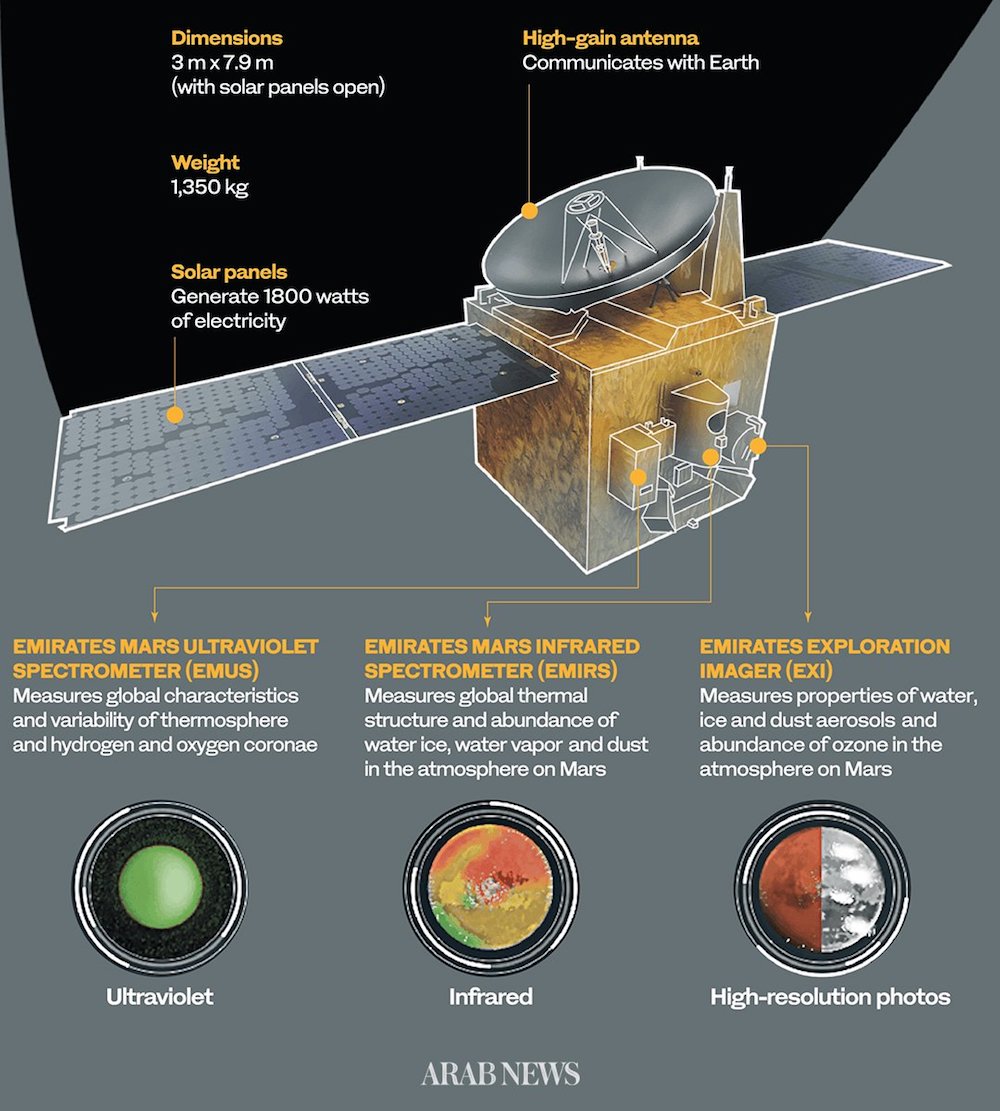
Hope is set to reach Mars in February 2021, the year the UAE celebrates 50 years since the country’s formation.
It blasted off from the Tanegashima Space Center on a small southern Japanese island aboard a Mitsubishi Heavy Industries’ H-IIA rocket, on time at 6:58 a.m. (2158 GMT Sunday) into the blue sky. Mitsubishi said the probe has been successfully separated from the rocket and is now on its solo journey. The launch had been delayed for five days because of stormy weather.
At Mohammed bin Rashid Space Center in Dubai, Emirati men in their traditional white kandora robes and women in their black abayas watched transfixed as the rocket lifted off. As its stages separated, a cheer went out from a group of Emirati men seated on the floor. They began clapping, one using his face mask due to the coronavirus pandemic to wipe away a tear.
“It was great to see everything going according to schedule today. It looks like things are all on track. It’s a huge step in terms of space exploration to have a nation like the UAE taking that giant leap to send a spacecraft to Mars,” Astronomer Fred Watson said.
“Being on route to a planet like Mars is an exceptional achievement.”
A newcomer in space development, the UAE has successfully put three Earth observation satellites into orbit. Two were developed by South Korea and launched by Russia, and a third — its own — was launched by Japan.

A successful Hope mission to Mars would be a major step for the oil-dependent economy seeking a future in space, coming less than a year after the launch of the first UAE astronaut, Hazzaa Ali Almansoori. He spent over a week at the International Space Station last fall.
The UAE has set a goal to build a human colony on Mars by 2117.
“It sends a very strong message to the Arab youth that if the UAE is able to reach Mars in less than 50 years, they could do much more,” Omran Sharaf, the project director of Emirates Mars Mission, told The Associated Press on Sunday as his colleagues prepared for the launch.
The Emiratis involved in the program also acknowledged it represented a step forward for the Arab world, the home of mathematicians and scientists for centuries before the wars and chaos that have gripped wide swathes of it in recent times.
“So the region has been going through tough times in the past decades, if not centuries,” Sharaf said. “Now we have the case of the UAE, a country that’s moving forward with its plans, looking at the future and the future of region also.”
For its first Mars mission, the UAE chose partners instead of doing it all on its own.
“Developing a spacecraft is not easy even if there is ample funding,” said Junya Terazono, an astronomer at Aizu University.
Emirati scientists worked with researchers at the University of Colorado Boulder, University of California, Berkeley and Arizona State University. The spacecraft was assembled at Boulder and transported to Japan as the two countries looked to expand their ties with the rich and politically stable Middle Eastern nation.
The Hope Probe is ready to launch into space in a few hours..
Watch the launch LIVE: https://t.co/A0mQfe2Awh
20th July
01:58:14 AM (UAE Time)
19th July 2020
09:58:14 PM GMT#HopeMarsMission pic.twitter.com/ZU7T1FtT55
— Hope Mars Mission (@HopeMarsMission) July 19, 2020
The Amal spacecraft, along with its launch, cost $200 million, according to Omran Sharaf, the UAE project manager. Operation costs at Mars have yet to be divulged.
Amal, about the size of a small car, carries three instruments to study the upper atmosphere and monitor climate change while circling the red planet for at least two years. It is set to follow up on NASA’s Maven orbiter sent to Mars in 2014 to study how it went from a warm, wet world that may have harbored microbial life during its first billion years, to the cold, barren place of today.
Hope also plans to send back images of weather changes.
Japan, a US ally, has already long collaborated in defense and space technology.
Resource-poor Japan has traditionally kept friendly ties with Middle Eastern countries. In recent years, Japan has increasingly stepped up trade and defense ties with the UAE, and now seeks to expand its space business.
Two other Mars missions are planned in the coming days by the US and China. The US plans to send a rover named Perseverance to search for signs of ancient life and collect rock and soil samples for return to Earth. Liftoff is targeted for July 30. China aims to explore Mars with an orbiter and rover to study the planet’s surface, and search for water and ice. This launch is set for around July 23.
Japan has its own Mars mission planned in 2024.
Japan Aerospace Exploration Agency, or JAXA, plans to send a spacecraft to the Martian moon Phobos to collect samples to bring back to Earth in 2029.



